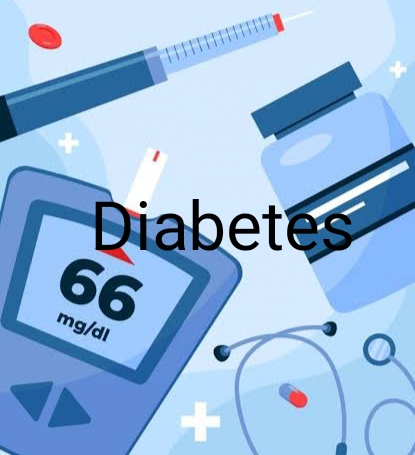Director SKIMS urges lifestyle changes, public health interventions to prevent disease
Jahangeer Ganaie
Srinagar, Nov 14 :
At least 7.8 percent of the population in Jammu and Kashmir and Ladakh is currently suffering from diabetes, while over 10.5 percent are in the prediabetes stage, a renowned doctor said on the occasion of World Diabetes Day, on Thursday. He said a large proportion of the population is grappling with other non-communicable diseases (NCDs).
Dr Mohammad Ashraf Ganie, a renowned endocrinologist and Director of SKIMS Soura, revealed these findings during a media interaction at the institute.
According to the details obtained by the news agency—Kashmir News Observer (KNO), the findings are based on the results of the ICMR INDIAB Study — the world’s largest study on diabetes conducted by the Indian Council of Medical Research (ICMR). The study provides in-depth data on the prevalence of diabetes and other metabolic NCDs across different states, including Jammu and Kashmir and Ladakh.
Dr Ganie said non-communicable diseases, particularly diabetes, are rapidly rising in India, including the J&K and Ladakh regions. He said the ICMR-INDIAB study has highlighted regional variations in the prevalence of these diseases. The increasing rates of diabetes, prediabetes, hypertension and obesity are due to unhealthy lifestyle practices, including poor diet, lack of exercise and increasing stress, he added.
“The rapid increase in the prevalence of non-communicable diseases (NCDs) in our region is alarming. These diseases, especially diabetes, are preventable through simple lifestyle changes,” Dr Ashraf said, adding that there is an urgent need for coordinated efforts among healthcare providers, government bodies and social organisations to raise awareness and promote healthier lifestyle choices.
The Director SKIMS said the media plays a crucial role in spreading awareness and creating a cultural shift toward healthier living. He said the results of the study called for urgent public health interventions at the grassroots level to address these growing concerns.
According to the findings from the ICMR-INDIAB Study, 7.8 percent of the population in J&K and Ladakh is diagnosed with diabetes. Out of these, 5.4 percent are aware of their condition, while 2.4 percent remain unaware. It revealed that 10.5 percent of the population is in the prediabetes stage, which puts them at high risk of developing diabetes in the future. “30 percent of the population in the region is hypertensive, while 57.6 percent are considered obese,” it stated.
Dr Ganie said the study, which involved a comprehensive survey across urban and rural areas of J&K and Ladakh, was conducted in phases with a stratified multistage sampling approach. The data from the study is critical for understanding the regional variations in the prevalence of diabetes, obesity, hypertension, and other NCDs.
“State governments will be able to use this detailed data to better allocate resources and focus on prevention, early diagnosis and effective management of NCDs,” Dr Ashraf said, adding that the study also paves the way for collaboration between ICMR, local governments, healthcare providers, and community leaders to implement region-specific interventions aimed at combating NCDs.
The Director SKIMS said that in the future, the ICMR plans to leverage insights from the study to further strengthen public health initiatives and encourage healthier lifestyle practices, especially in underserved areas—(KNO)

